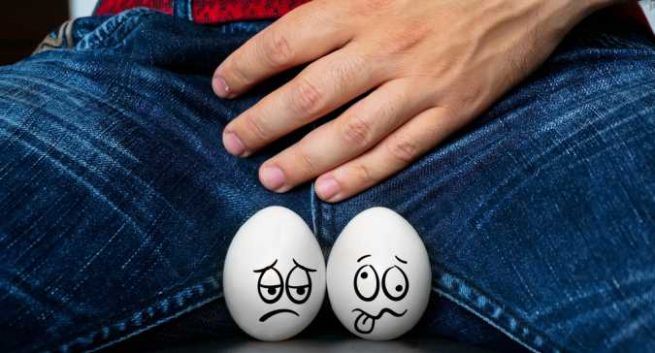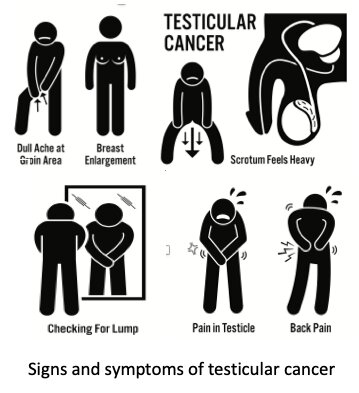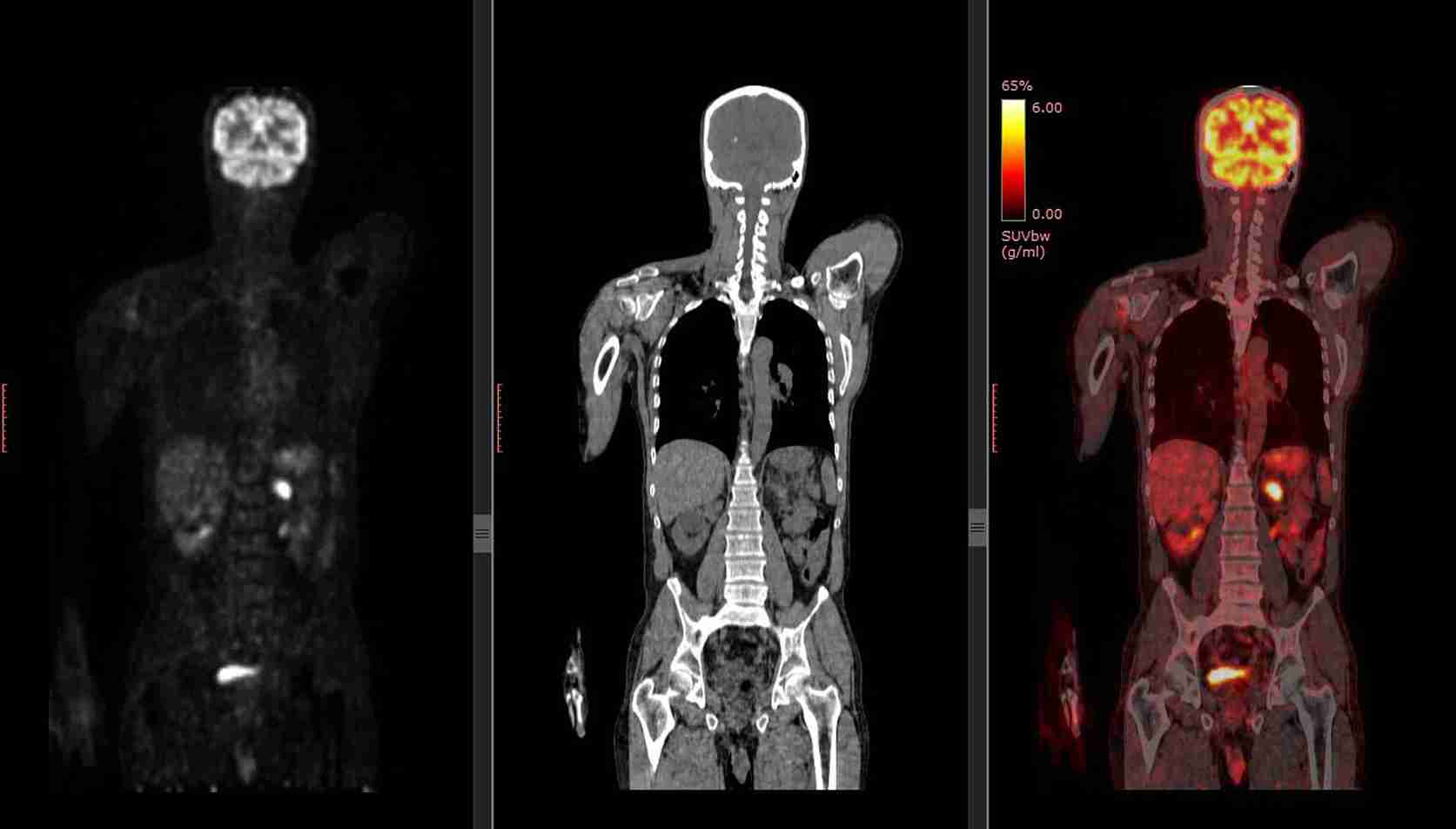CONSULTANT
CONSULTANT
Jewel Urology Center, Mumbai
Nanavati Hospital, Mumbai
Saifee Hospital, Mumbai
DR. VIVEK VENKAT
Compassionate Evidence-Based Ethical Cancer Care

WHAT IS TESTICULAR CANCER? WHAT ARE ITS CAUSES?
Testicular cancer is an abnormal malignant growth in the testicle. It has the potential to spread and be lethal to the patient.
Any abnormal growth or swelling in the testicle, should be examined by a urologist.
It is one of the commonest cancers affecting young men aged 20-45 years. The common risk factors are:
- An undescended testicle at birth which has not reached the scrotum.
- Genetic disorders like Klinefelter’s syndrome.
- Family history
- Infertility




WHEN IS SURGERY NEEDED FOR TESTICULAR CANCER?
Surgical removal of the testicle (orchidectomy) is an essential step in the diagnosis and treatment.
It allows classification of the type of tumor and its local stage on pathological examination.
Surgical removal of the affected testis can achieve excellent cure in early stages.
In more advanced stages and high-grade tumors, the retroperitoneal lymph nodes are removed surgically.
This allows better staging and may also be curative in some patients.
Doing this surgery robotically has reduced complications and allows for quicker recovery.
However, with highly effective chemotherapy available today this surgery is rarely needed.
WHAT ARE THE TREATMENTS FOR TESTICULAR CANCER?
Treatment depends on the stage of disease. Staging is based on the pathological findings after removal of the testicle, blood tumor marker levels (serum alpha fetoprotein, beta-HCG and LDH levels) and findings on the imaging (CT scan of the chest abdomen and pelvis).
If there is no spread anywhere and tumor markers are normal, orchidectomy alone may suffice.
In case there are adverse pathologic features on the orchidectomy, or tumor markers or imaging show spread of disease to the lymph nodes or other organs, chemotherapy is needed. Testicular cancer chemotherapy is very effective even in advanced cases.


WHAT ARE THE SURGICAL ALTERNATIVES FOR TESTICULAR CANCER?
- Complete removal of the testis and adjacent spermatic cord is the first essential step in the treatment of testicular cancer.
- It provides the pathologic type of tumor and local stage.
- The testicle is removed through a small incision in the inguinal region with the spermatic cord.
- A biopsy of the testis through the scrotal skin should not be done because it can alter the route of spread of cancer.
Radical Orchidectomy
- The retroperitoneal lymph nodes are the first site of spread from testicular cancer and carry important prognostic information about the disease.
- This is a very extensive surgery with risk of morbidity. All the lymph nodes from the kidney to pelvic nodes are removed (exact template depends on the side affected). These lymph nodes lie along the major blood vessels of the body (inferior vena cava and aorta).
- With very effective chemotherapy available today the need for this surgery has reduced, however it may be needed in those with persistent disease after chemotherapy.
- Doing these procedures by a robotic approach (robotic RPLND) reduces the risk of complications and allows for a quick recovery.
Retroperitoneal lymph node dissection
WHAT ARE THE COMPLICATIONS OF SURGERY?
- Bleeding – A scrotal hematoma can occur and is usually managed conservatively. An RPLND can be associated with significant bleeding and blood transfusion.
- Infection – Most infections are mild and respond very well to antibiotics.
- Removal of adjacent organs – An RPLND may be associated with removal of adjacent organs because of involvement by the residual tumor. The kidney is the most common organ that can be affected.
- Ileus – Delay in recovery of intestinal function can be seen after RPLND.
- Ejaculatory difficulty – This can be seen after RPLND.
HOW TO PREPARE FOR THE SURGERY?
- Basic investigations to assess your fitness for surgery.
- If a urinary infection is detected you will be placed on appropriate antibiotics.
- Blood thinners will need to stopped for about 5-7 days before the surgery and this should be discussed with your cardiologist.
- For RPLND special cardiac investigations may be needed.
Robotic surgery provides significant benefits for both patient and surgeon.
WHAT TO EXPECT DURING AND AFTER THE SURGERY?
- An orchidectomy is a simple day-care or 24-hour admission procedure. It is usually done under spinal or general anesthesia. Most patients are discharged quickly with minimal problems.
- An RPLND is major surgery needing general anesthesia. An epidural may be placed for pain relief as well.
- After an RPLND you will notice the urinary catheter which is a tube inserted into the bladder to drain the urine. It is generally left in place for 2-3 days.
- Some men may need to be shifted to ICU after an RPLND.
- You may have an abdominal drain after RPLND.
- Hospital stay after RPLND depends on the extent of the procedure and recovery of intestinal function and is usually 5-7 days
WHAT ARE THE RESULTS OF TESTICULAR CANCER SURGERY?
- Surgery has an excellent cure rate in early disease and men can remain on close surveillance if the pathologic features are favourable.
- Depending on the biopsy report and CT scan findings, chemotherapy may be required.
- In more advanced cases, the addition of lymph node dissection provides important information on prognosis and may be curative in some cases (especially after chemotherapy).
Testicular cancer is one of the commonest tumors of young men aged 20-45 years. It usually presents as a painless, progressive swelling or lump of the testicle.
The cancer can be diagnosed by clinical examination and ultrasound. Blood tests called tumor markers (AFP, LDH, beta-HCG) and a CT scan of the chest, abdomen and pelvis are used to stage the disease.
Removal of the affected testicle does not cause infertility and one normal testicle is sufficient for sperm production. However, testicular cancer is more common in patients with infertility and treatments like chemotherapy and radiation affect sperm production.
Yes – the urologist will likely recommend you to preserve your semen especially if you are likely to need chemotherapy.
A single normal testis produces enough testosterone for normal sexual function.
Jewel Urology Center
No. 89, N. S. Road Number 1,
Navpada, JVPD Scheme,
Andheri West
Mumbai 400049, India
(m):+919136041545
Visiting Hours : Mon-Sat 4.30 - 6 pm
By appointments only
Email: appointments@drvivekvenkat.com
Phone:+919136041545
Whatsapp: +919136041545
Nanavati Max Hospital
S.V road, Vile Parle west
Mumbai 400056, India
Visiting Hours : Mon-Sat 2 - 4.30 pm
Email: appointments@drvivekvenkat.com
Phone:+919136041545
Whatsapp: +919136041545
Saifee Hospital
15/17, Maharshi Karve Rd,
Opposite Charni Road Station East,
Mumbai 400004, India
(m):+919136041545
Visiting Hours : Thursday 11am - 1 pm
By appointments only
Email: appointments@drvivekvenkat.com
Phone:+919136041545
Whatsapp: +919136041545
Terms & Conditions | Legal Disclaimer | Privacy Policy
Terms & Conditions | Legal Disclaimer | Privacy Policy
© Copyright 2021, Dr. Vivek. All Rights Reserved.
Disclaimer: The purpose of this website (www.drvivekvenkat.com) is solely for the purpose of creating awareness and imparting education regarding Uro surgery. This shall not be treated as a substitute to a professional uro surgeon's advice or prescription. Every individual and their case is different, so the results of any of the treatments mentioned on the website may vary. This website contains graphic images of before and after results of procedures, so viewer discretion is advised.

 docvivek@gmail.com
docvivek@gmail.com


